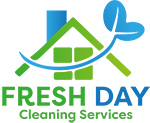Eco-friendly cleaning offers significant advantages for both environmental protection and human health. These products use plant-based, biodegradable ingredients that reduce harmful effects on ecosystems and improve indoor air quality. Non-toxic formulations minimize exposure to chemicals linked to respiratory issues and skin irritations. While initial costs may be higher, eco-friendly cleaners often require smaller quantities, leading to long-term savings. Advanced green chemistry has yielded products that rival traditional cleaners in performance, with natural ingredients like citric acid demonstrating superior efficacy against dirt and bacteria. Eco-certifications guarantee compliance with strict environmental and health standards, guiding consumers towards sustainable choices. Further exploration reveals additional benefits of this safe, effective cleaning approach.
Environmental Advantages
With the increasing global focus on environmental protection, eco-friendly cleaning products offer significant advantages over traditional chemical cleaners. These products significantly reduce the environmental impact through their use of plant-based ingredients and biodegradable formulations. By minimizing harmful effects on ecosystems, eco-friendly products contribute to the preservation of natural habitats and water systems.
A key benefit of these cleaners is their positive impact on indoor air quality. Unlike conventional cleaners, eco-friendly products emit fewer volatile organic compounds (VOCs), reducing the potential for respiratory irritation and other health concerns associated with poor air quality. This reduction in VOC emissions also contributes to decreased outdoor smog formation, further benefiting the environment.
The use of renewable resources in eco-friendly cleaning products supports sustainable practices and helps conserve non-renewable resources. Additionally, the packaging of these products often incorporates recycled materials, promoting a circular economy and reducing single-use plastic waste. By aligning with environmental regulations and guidelines, such as those for LEED certification, the adoption of eco-friendly cleaning practices fosters broader sustainability efforts and encourages responsible resource management across industries.
Health and Safety Benefits
Beyond their environmental advantages, eco-friendly cleaning products offer substantial health and safety benefits for users and occupants. The Environmental Protection Agency (EPA) reports that conventional cleaning products can expose individuals to harmful chemicals, leading to headaches and respiratory issues. In contrast, eco-friendly cleaning products significantly reduce this exposure, promoting a healthier indoor environment.
Non-toxic ingredients in green cleaning solutions decrease the risk of skin irritations and allergic reactions, particularly benefiting sensitive individuals and children. Additionally, improved indoor air quality resulting from these products has been linked to reduced asthma and allergy triggers, enhancing overall well-being for occupants. Many eco-friendly cleaners contain natural fragrances instead of synthetic ones, which can irritate respiratory conditions, contributing to a more pleasant and safe atmosphere.
Research indicates that using green cleaning products correlates with better health outcomes, demonstrating lower incidence rates of chemical exposure-related illnesses among cleaning staff and households. By prioritizing eco-friendly cleaning products, individuals can create a safer living and working environment, minimizing potential health risks associated with traditional cleaning agents while maintaining effective sanitation practices.
Cost-Effectiveness Analysis
A comprehensive cost-effectiveness analysis of eco-friendly cleaning products reveals significant long-term savings potential for consumers and businesses. While initial costs may be higher, these products often require smaller quantities for effective cleaning, leading to reduced purchasing expenses over time. Additionally, the use of non-toxic ingredients in green cleaning solutions can substantially lower health-related costs by minimizing chemical exposure risks and associated medical expenses.
Long-Term Savings Potential
Three key factors contribute to the long-term savings potential of eco-friendly cleaning practices. First, eco-friendly cleaning products often require less quantity per use, leading to reduced product purchases over time. Second, the use of biodegradable ingredients minimizes health-related expenses associated with chemical exposure. Third, many green cleaning products are designed for durability, resulting in lower replacement costs compared to traditional cleaners.
| Factor | Cost Savings | Health Benefits |
|---|---|---|
| Product Usage | Reduced purchases | Fewer chemical exposures |
| Ingredients | Lower health expenses | Improved indoor air quality |
| Durability | Less frequent replacements | Consistent safety profile |
DIY eco-friendly cleaning solutions, utilizing common household items like vinegar and baking soda, offer additional cost savings while maintaining effective cleaning results. For businesses, investing in eco-friendly practices can yield long-term financial benefits through LEED certification, potentially increasing property value and attracting more clients or tenants. This comprehensive approach to eco-friendly cleaning not only promotes environmental sustainability but also demonstrates significant long-term savings potential for both households and commercial entities.
Reduced Health Expenses
Cost-effectiveness analysis of eco-friendly cleaning practices reveals substantial potential for reduced health expenses. Studies indicate that using eco-friendly cleaning products can lead to significant decreases in health-related costs, particularly in respiratory issues and allergies. By minimizing exposure to volatile organic compounds and other harmful chemicals commonly found in conventional cleaning agents, businesses and individuals can potentially lower their healthcare expenditures over time.
The benefits of green cleaning extend beyond immediate health improvements. Improved indoor air quality resulting from the use of environmentally friendly products may reduce the need for medical treatments related to asthma and allergies, which can be costly chronic conditions. In addition, businesses adopting these practices may experience fewer workers’ compensation claims due to a decrease in chemical-related health issues among employees. This reduction in occupational hazards can contribute to overall cost savings in employee health expenses.
When evaluating cleaning products based on both environmental and health criteria, the long-term financial advantages become apparent. While initial costs may be higher, the concentrated nature of eco-friendly products often results in less frequent purchases, ultimately leading to economic benefits alongside improved health outcomes.
Performance and Effectiveness Comparison
Recent advancements in green chemistry have transformed the eco-friendly cleaning industry, producing products that rival or surpass traditional chemical cleaners in performance and effectiveness. Natural ingredients, such as citric acid and vinegar, have demonstrated superior efficacy in combating dirt, grease, and bacteria compared to conventional cleaners in specific applications. This shift towards green cleaning products not only offers environmental benefits but also guarantees comparable or superior cleaning performance.
Studies have validated the effectiveness of eco-friendly products, showing they can match or exceed the cleaning power of harsh chemicals while significantly reducing harmful residues on surfaces. Reputable organizations have certified these products, confirming they meet stringent performance standards while minimizing environmental impact. Although eco-friendly cleaning products may have higher initial costs, their concentrated formulas require less product per use, resulting in long-term cost savings. This cost-benefit analysis further supports the transition to green cleaning solutions. The combination of performance, safety, and environmental considerations makes eco-friendly products a compelling choice for both residential and commercial cleaning applications.
Sustainable Ingredient Spotlight
Building upon the performance advantages of eco-friendly cleaning products, a closer examination of their sustainable ingredients reveals the innovative science behind their effectiveness. Eco-friendly products prioritize biodegradable ingredients, such as plant-based surfactants, which naturally break down in the environment, minimizing pollution and waste. These sustainable cleaning solutions often incorporate naturally derived components like vinegar, baking soda, and essential oils, providing powerful cleaning action without relying on harmful chemicals or synthetic fragrances.
The formulation of these products frequently includes natural preservatives like citric acid, which not only extends shelf life but also improves cleaning efficacy. Renewable resources, such as palm oil and coconut oil, are utilized to promote sustainability and reduce dependence on non-renewable sources. A key feature of eco-friendly cleaners is the inclusion of non-toxic, plant-derived enzymes, which effectively break down dirt and stains while ensuring safety for users and the environment. This combination of sustainable ingredients demonstrates the careful balance between cleaning power and environmental responsibility, showcasing how science-driven formulations can achieve ideal results without compromising ecological integrity.
Eco-Certifications Explained
Maneuvering the landscape of eco-friendly cleaning products becomes significantly more manageable with the aid of eco-certifications. These validations, including Green Seal, EcoLogo, and Safer Choice, guarantee that products meet stringent environmental and health standards. Eco-certifications verify the absence of harmful chemicals and volatile organic compounds (VOCs), promoting environmental protection and user safety.
Products bearing these certifications undergo rigorous testing and assessments to confirm their biodegradability, non-toxicity, and minimal environmental impact. This process aligns with guidelines established by authoritative bodies such as the U.S. Environmental Protection Agency (EPA) and the World Health Organization (WHO) for safe cleaning practices.
Eco-certifications serve as reliable indicators of sustainability, enabling consumers to make informed purchasing decisions that align with their health and environmental values. Additionally, some certifications contribute credits towards green building initiatives like LEED, further promoting eco-friendly practices in various spaces.
Frequently Asked Questions
Why Is Eco-Friendly Cleaning Important?
Eco-friendly cleaning is essential for implementing sustainability practices and mitigating negative health impacts associated with chemical exposure. It significantly improves indoor air quality, reducing respiratory risks for occupants. By minimizing harmful waste, these methods contribute to environmental preservation. Consumer choices favoring eco-friendly products drive market changes towards safer alternatives. Additionally, these practices often prove cost-effective in the long term, balancing economic and ecological concerns. The scientific evidence supporting eco-friendly cleaning underscores its importance in promoting both human and environmental well-being.
What Are the Environmental Benefits of Cleaning?
Cleaning with sustainable materials, employing biodegradable options, and utilizing energy-efficient methods yield significant environmental benefits. These practices result in reduced pollution, improved water conservation, and enhanced habitat protection. Scientific studies demonstrate that eco-friendly cleaning approaches minimize harmful chemical discharge, preserve aquatic ecosystems, and promote overall environmental health. In addition, the use of non-toxic substances contributes to improved air quality and reduced exposure to hazardous compounds, offering tangible health benefits for both humans and wildlife.
What Are the Advantages of Eco-Friendly Products?
Eco-friendly products offer numerous advantages, including adherence to stringent safety standards and reduced health impacts due to non-toxic ingredients. Their cost-effectiveness stems from concentrated formulas and longer shelf life. Ingredient transparency allows consumers to make informed choices, aligning with growing market trends and increasing consumer demand. As product availability expands, these alternatives become more accessible. Scientific studies demonstrate their efficacy in maintaining cleanliness while minimizing environmental impact, making them a prudent choice for health-conscious and environmentally aware consumers.
What Are the Benefits of Switching to Green Cleaning Products?
Studies show that conventional cleaning products contribute to 10% of toxic exposures reported to U.S. Poison Control Centers annually. Switching to green cleaning products offers numerous benefits: reduced toxins and natural ingredients create safer homes, while improved air quality boosts overall health. These products support sustainable practices, minimizing environmental impact. Additionally, green cleaners often demonstrate cost efficiency due to their concentrated formulas. The transition to eco-friendly cleaning solutions provides substantial health benefits and promotes a more sustainable lifestyle.








